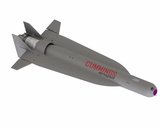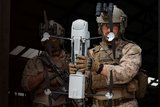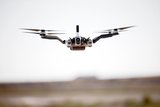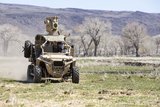Training and Logistics Support Activity for small UAS launched
The US Naval Air Systems Command has launched a new UAV training and logistics programme at at Camp Lejeune, NC, giving future UAV operators access to new and improved curriculum. The announcement was made in a 28 August 2012 statement.
A team from the US Navy and Marine Corps Small Tactical UAS programme office (PMA-263) launched the Training and Logistics Support Activity (TALSA) in mid-July to marines from II Marine Expeditionary Force. The activity allows troops to receive UAS training on short notice and expand the previous curriculum to include all Group I UAS assets.
Group 1 UAS assets are small UAS that typically weight less than 20 lbs, fly below 1,200 feet, and have a flight duration of 45 minutes to 2 hours. Examples include the RQ-11B Raven, Wasp, RQ-20A Puma and RQ-16B T-Hawk UAS.
Col. Jim Rector, PMA-263 programme manager, commented on the decision to include Group 1 assets, saying: ‘Consistent training and sustainment support are key components for any weapon system and are integral to the warfighter’s mission success. After years of operational contingency funding and rapid fielding of numerous small UAS, we identified this as an area that we needed to rapidly improve.’
According to Rector, small UAVs provide the battlefield commander an organic capability, within his or her unit, to perform over-the-horizon reconnaissance, surveillance and target acquisition. This reduces operational risks and enhances his or her decision process.
Until now, the marines used other contracts to support their UAS training requirements for the RQ-11B Raven. The newly established TALSA offers classes more frequently with an expanded curriculum, giving sailors and marines greater flexibility when going on rapid deployment.
The courses focus on the systems' function, employment, maintenance and troubleshooting issues. Once trained, UAS operators can tactically and effectively employ Group 1 systems to include mission planning, mission sensor/payload operations, launching, remotely piloting and recovering the aerial vehicle.
PMA-263 plans to establish an additional TALSA at Camp Pendleton later in 2012.
More from Uncrewed Vehicles
-
![Cummings Aerospace showcases Hellhound loitering munition designed for US Army’s LASSO programme (video)]()
Cummings Aerospace showcases Hellhound loitering munition designed for US Army’s LASSO programme (video)
Cummings Aerospace presented its turbojet-powered Hellhound loitering munition at SOF Week 2025, offering a man-portable solution aligned with the US Army’s LASSO requirements.
-
![SOF Week 2025: PDW unveils attritable FPV drone for SOF operations at scale]()
SOF Week 2025: PDW unveils attritable FPV drone for SOF operations at scale
PDW has revealed its Attritable Multirotor First Person View drone at SOF Week 2025, offering special operations forces a low-cost, rapidly deployable platform for strike and ISR missions, inspired by battlefield lessons from Ukraine.
-
![SOF Week 2025: Teledyne FLIR white paper provides guidance on reusable loitering munitions]()
SOF Week 2025: Teledyne FLIR white paper provides guidance on reusable loitering munitions
Teledyne FLIR is highlighting the emerging requirements for 'recoverable and re-usable' loitering munitions across the contemporary operating environment during this week’s SOF Week conference in Tampa, Florida.
-
![SOF Week 2025: Kraken Technology group debuts K3 Scout USV in North America]()
SOF Week 2025: Kraken Technology group debuts K3 Scout USV in North America
High-performance maritime industry player Kraken Technology Group, based in the UK, has used the SOF Week conference in Tampa, Florida this week to debut its K3 Scout uncrewed surface vessel (USV) to the North American market.
-
![Palladyne AI and Red Cat to demonstrate capabilities for autonomous drone swarms to the US military]()
Palladyne AI and Red Cat to demonstrate capabilities for autonomous drone swarms to the US military
Red Cat and Palladyne AI recently conducted a cross-platform collaborative flight involving three diverse heterogeneous drones.
-
Jammer resistant drone designs spark search for countermeasures
The Russia-Ukraine conflict has driven another stage of evolution for drones and the counter measures to defend against them.

























